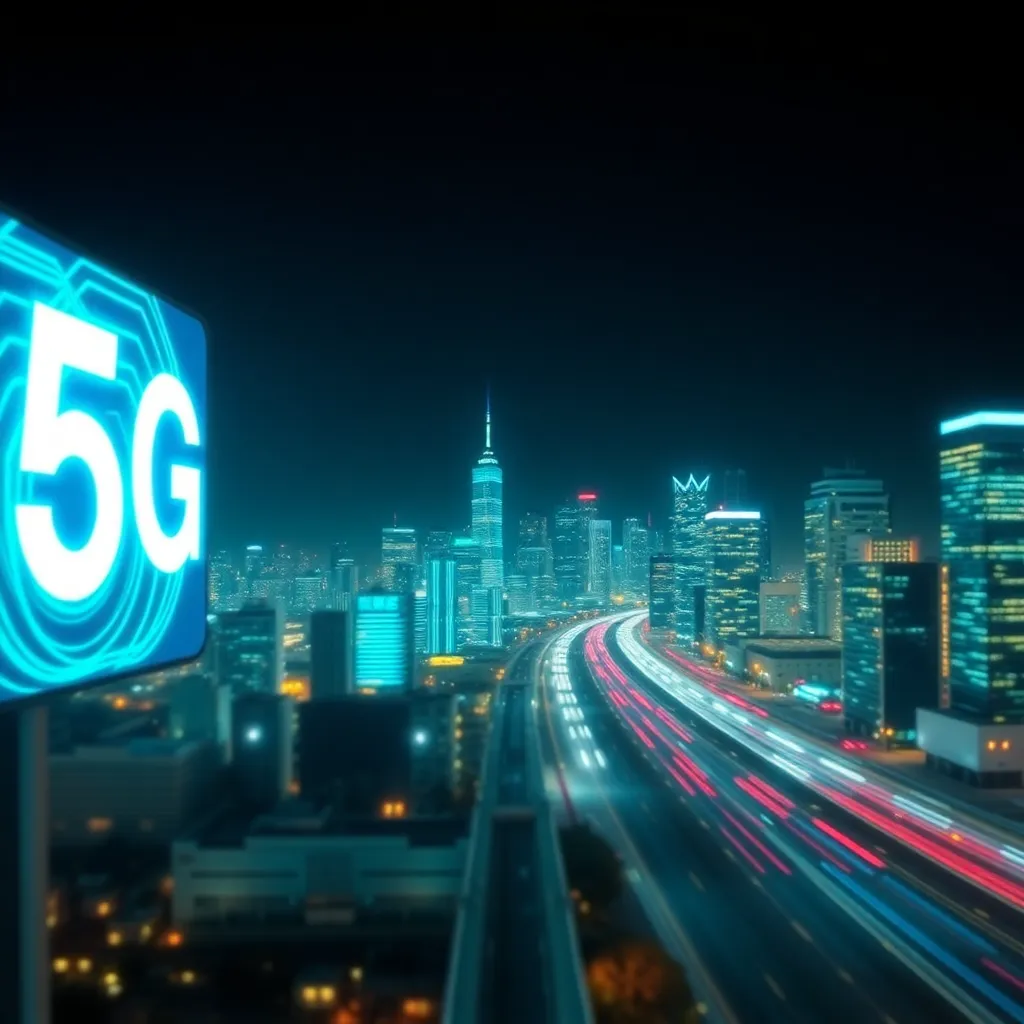As 5G technology continues to roll out worldwide, its impact extends far beyond just faster mobile speeds. From reshaping industries to enabling smarter cities, 5G is driving new possibilities and innovation across the board. Here’s a deep dive into the transformative effects of 5G on various sectors, and what consumers, businesses, and municipalities can expect from this next-generation network.
1. Revolutionizing Industries: 5G’s Role in Business and Infrastructure
5G technology is set to drive a new wave of productivity and efficiency in industries such as manufacturing, healthcare, and logistics. With its ultra-low latency, high data transfer rates, and massive device connectivity, 5G enables applications that were previously unimaginable.
- Manufacturing: 5G-powered smart factories leverage automation and real-time monitoring, which means that manufacturers can detect equipment failures before they happen, optimizing maintenance and minimizing downtime.
- Healthcare: 5G’s high-speed, low-latency connection enables remote surgeries and real-time diagnostics, making telemedicine even more effective, particularly in remote and underserved regions.
- Logistics: Autonomous vehicles and drones, essential to logistics and last-mile delivery, can rely on 5G for seamless and safe operation, helping supply chains become faster and more resilient.
Key Benefit: 5G allows industries to connect devices and processes more effectively, leading to enhanced productivity, operational efficiency, and smarter data-driven decision-making.
2. Smart Cities and Infrastructure: Building Smarter, More Connected Cities
Smart cities rely on interconnected infrastructure, IoT devices, and data to make urban areas more efficient, sustainable, and responsive to residents’ needs. 5G plays a critical role in this transformation, supporting high-speed connectivity between millions of devices.
- Traffic and Transport: 5G enables real-time traffic monitoring, smart traffic lights, and autonomous public transport systems, easing congestion and reducing emissions.
- Public Safety: Enhanced connectivity allows for real-time video surveillance, smart lighting, and emergency response systems that improve urban security and emergency management.
- Environmental Monitoring: Sensors connected via 5G can monitor air quality, noise levels, and water pollution, providing cities with real-time data to address environmental issues proactively.
Key Benefit: 5G provides the connectivity backbone required to support the complex IoT networks that make smart cities more efficient, safe, and environmentally conscious.
3. Consumer Technology: The Future of Mobile Devices and Home Connectivity
For consumers, 5G represents a new era of possibilities for mobile devices, wearables, and home technology. With faster downloads, seamless streaming, and immersive experiences, 5G promises to enhance nearly every aspect of digital interaction.
- Smartphones and Wearables: 5G-enabled devices can deliver faster data rates, ideal for applications like augmented reality (AR), virtual reality (VR), and high-definition streaming. This opens up new possibilities in entertainment, gaming, and fitness tracking.
- Home Connectivity: With 5G home internet, households can experience faster and more stable connections, making it easier to manage smart home devices, stream multiple 4K videos simultaneously, and support remote work and learning.
- Gaming and VR/AR: The low latency of 5G is a game-changer for cloud gaming and VR applications, enabling high-speed, immersive experiences without lag. This technology is expected to redefine entertainment, with faster response times and more lifelike graphics.
Key Benefit: 5G provides a higher bandwidth, enabling consumers to enjoy richer, faster digital experiences across a range of devices, from smartphones to smart homes.
4. Real Estate and Infrastructure Development: Adapting to 5G’s Infrastructure Needs
The deployment of 5G requires a significant expansion of telecommunications infrastructure, including small cell towers, fiber optics, and network densification. For the real estate sector, this rollout presents both challenges and opportunities.
- Cell Towers and Small Cells: Real estate developers and property owners are increasingly investing in cell towers and small cells to enhance 5G coverage in urban and suburban areas. In high-density locations, small cells are essential to maintain seamless 5G connectivity.
- In-Building Connectivity: Commercial buildings and residential properties are adapting to include enhanced network infrastructure, attracting tech-savvy tenants who rely on high-speed connectivity.
- Rural Expansion: Rural areas are seeing increased 5G infrastructure investment, helping to bridge the digital divide and bring high-speed internet to underserved communities.
Key Benefit: 5G’s rollout has generated new growth opportunities in real estate, as properties with high connectivity are in greater demand among businesses and consumers.
5. Addressing Health and Safety Concerns: EMF Exposure and 5G
As with any new technology, 5G has raised some health and safety concerns, particularly regarding electromagnetic field (EMF) exposure. The higher frequency of 5G waves has led some to question its impact on human health.
- Research and Standards: The World Health Organization (WHO) and other health agencies have studied EMF exposure and concluded that 5G is safe under current guidelines. However, ongoing research and regulatory monitoring ensure 5G technology is deployed safely.
- EMF Protection Devices: There is a growing market for EMF protection tools, including phone cases and shielding devices, which some consumers prefer for additional peace of mind.
Key Benefit: While 5G’s impact on health is closely monitored, safety standards and protective devices provide reassurance and protection for consumers concerned about EMF exposure.
Conclusion
5G technology has the potential to revolutionize industries, empower smart cities, and enhance consumer experiences, creating a hyper-connected world. As 5G continues to expand, the possibilities it unlocks will transform economies, improve quality of life, and bring exciting new innovations. Despite some challenges, the benefits of 5G for productivity, connectivity, and digital transformation are undeniable, and its impact on the future is just beginning to unfold.

